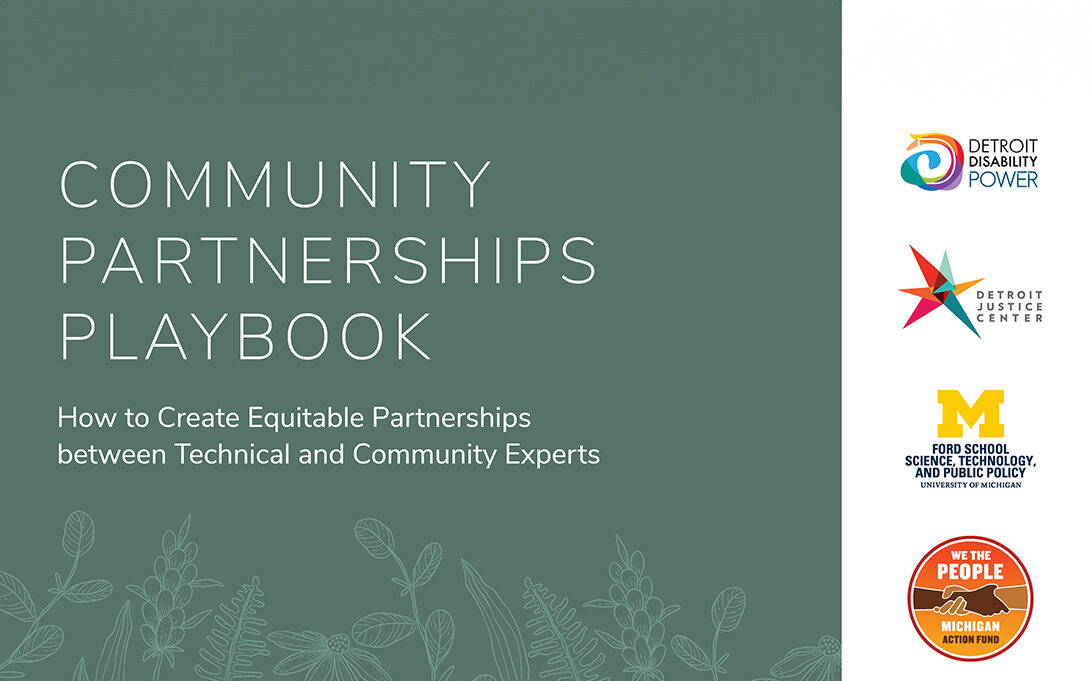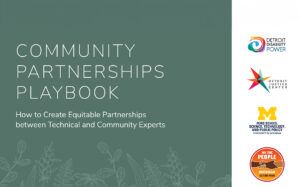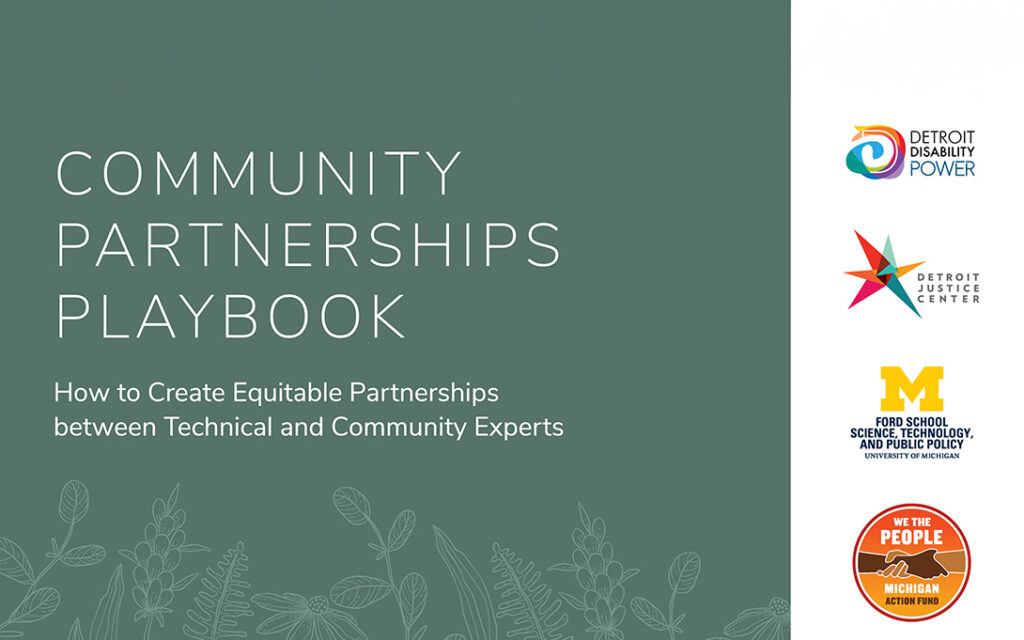

As the popularity of community engagement grows among technologists and academics, it is vital to ensure that they engage communities in ways that benefit the people they claim to serve and do not cause harm.
The Community Partnerships Playbook: How to Create Equitable Partnerships Between Technical and Community Experts is a new publication from the University of Michigan’s Science, Technology, and Public Policy program.
The program collaborated with three community-based non-profit organizations on the playbook and individual projects — Detroit Disability Power, Detroit Justice Center, and We the People Michigan. The Playbook brings together advice from these groups who have experienced a range of positive and negative experiences with researchers, academics, and technologists, along with insights developed from the Community Partnerships Initiative and scholarly literature.
The Playbook’s purpose is to guide researchers while supporting and lending authority to community organizations as they advocate for partnerships that will benefit their constituencies.
“We hope this playbook will improve partnership experiences for everyone, both community organizations and researchers, to help create more equitable technologies that serve the public interest,” said Molly Kleinman, managing director for the Science, Technology, and Public Policy program.
Throughout the playbook, the co-authors provide real world examples from both sides of community partnerships. It is designed to empower both researchers and community organizations.
Playbook co-author Eric Welsby, advocacy director at Detroit Disability Power, said: “These partnerships give us the opportunity to combine a university’s research knowledge with our boots-on-the-ground experience, and get us access to expertise that we don’t necessarily have in the organizing world.”


